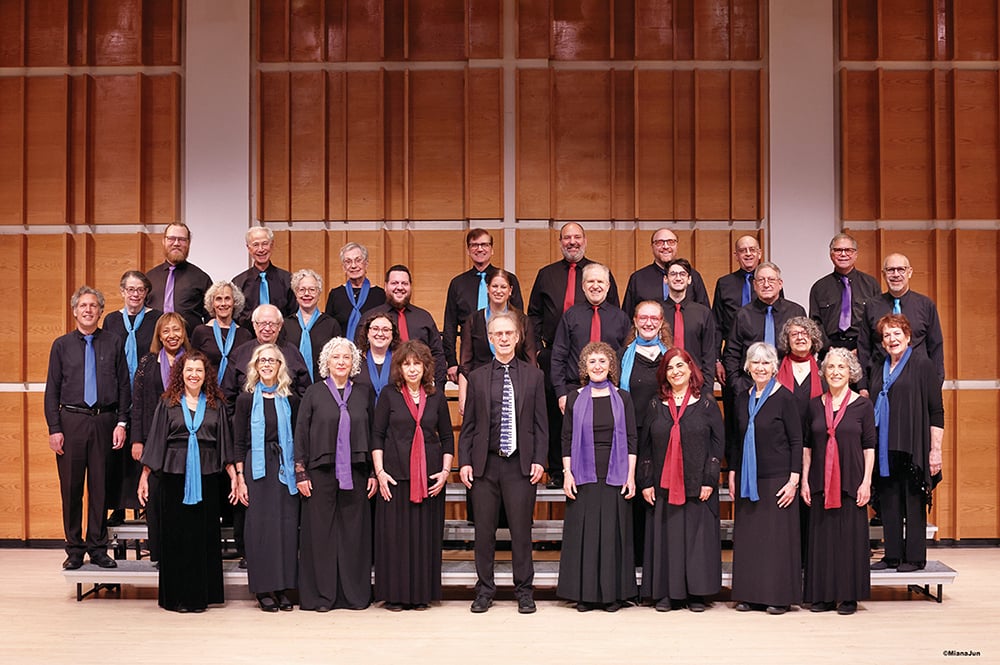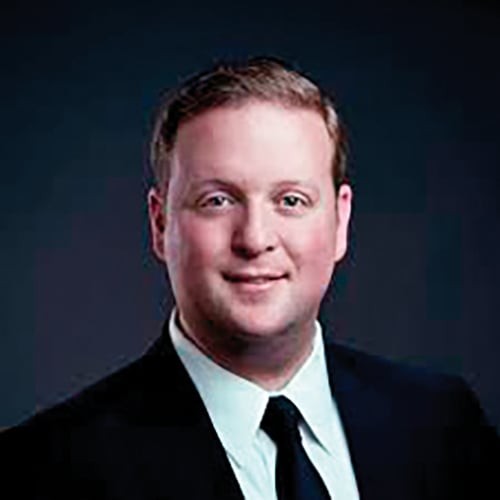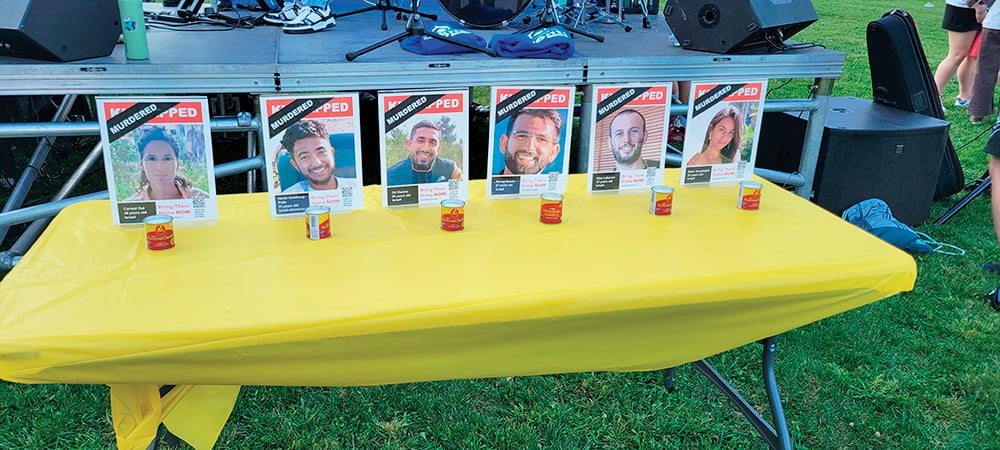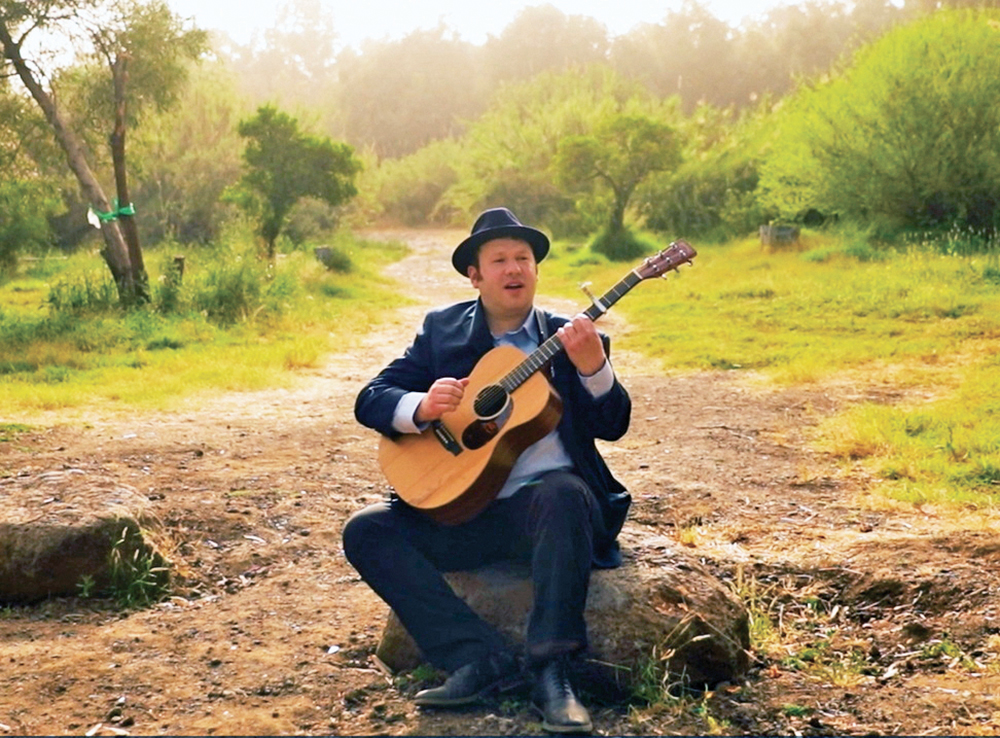
On Sunday, September 15, The Yiddish Philharmonic Chorus, under the direction of Binyumen Schaechter, performed its 2024 fall encore program at Merkin Hall in the Kaufman Music Center adjacent to Lincoln Center. Had Mordkhe Schaechter been in the audience, he would no doubt have “shepped” tremendous “naches” from seeing his son Binyumen conducting the revitalized 101-year-old chorus, as well as his daughter, Teaneck resident Gitl Schaechter-Viswanath, singing alto in the chorus.
Considered one of the leading Yiddish linguists of the 20th century, who spent his lifetime studying, standardizing and teaching Yiddish, Mordkhe Schaechter, who passed away in 2007, would have “kvelled” to see his life’s mission of reclaiming Yiddish as a living language for the descendents of its first speakers, Ashkenazic Jews, fulfilled.
Mordkhe Schaechter served as senior Yiddish studies lecturer at Columbia University, associate editor of “The Great Dictionary of the Yiddish Language,” and founder of several innovative national Yiddish organizations, among many other accomplishments. In 1994, he was awarded the Itzik Manger Prize, the most prestigious Yiddish literary award. However, if asked what constituted his greatest honor in life, he would no doubt have responded that every one of his children, grandchildren and great-grandchildren to date speak fluent Yiddish.
The Yiddish Philharmonic Chorus, known upon its founding in 1923 as The Union of Freedom Singers (Freiheit Gezang Farein) changed its name in 1948 to the Jewish People’s Philharmonic Chorus, and two years ago it adopted its current name, The Yiddish Philharmonic Chorus, which more accurately reflects its nature and repertoire. Binyumen Schaechter has been the music director of the chorus since 1995. When he came aboard, the small group of singers—with an average age of approximately 70—and only sustaining two harmonies, needed upgrading. With the help of his sister Gitl Schaechter-Viswanath—a gifted Yiddish lexicographer, poet and singer, and most recently co-editor-in-chief of the “Comprehensive English-Yiddish Dictionary”—who joined in 1998, the chorus attracted a new coterie of younger singers.
Today, the chorus consists of 40 singers ranging in age from their 30s to 80s, some with rich Yiddish backgrounds and many not knowing Yiddish at all, from all spectra of Judaism and a few non-Jews, all infatuated by the lyricism of, and nostalgia for, the Yiddish language and song. In addition to leading the chorus, Binyumen Schaechter is an award-winning composer in the world of musical theater, credited with composing popular songs performed in numerous Off-Broadway shows. He has been commissioned to create singable Yiddish translations of operatic arias and American popular songs, a few of which were performed at the program. All of the choral arrangements of the songs presented in this program were created by Binyumen Schaechter himself.
Each year, the chorus selects a theme for that year’s performances. This year’s theme was immigration, marking the 100th anniversary of the shameful Immigration Act of 1924, which closed the doors of the U.S. shores to Jewish immigrants fleeing the oncoming horrors of the Holocaust.
The concert also marked the 100th anniversary of the birth of one of America’s most famous Jewish composers, Sheldon Harnick, who recently passed away at the age of 100. Two Yiddish versions of his unforgettable songs were presented at the concert: “L’Chaim” from the iconic ”Fiddler on the Roof,” and “In My Own Lifetime” from the acclaimed production “The Rothschilds.”
Appropriately opening the first part of the program, depicting the early immigrations of the 1890s through the 1920s, was “Zey Kumen Kin Amerike,” the original Neil Diamond hit “America” (translated by Schaechter). Diamond himself was a grandson of Jewish immigrants. All of the lyrics in both Yiddish and English were provided to the audience in a decorative journal, opening from right to left in keeping with the format of Yiddish print.
The songs, presented in various dialogues of Yiddish, described the great yearning of wives for husbands, and mothers for children, who had gone to the “Goldene Land” to find employment so that they could send for their families and be reunited. Some of the songs were dismal accounts of the hunger and danger, squalor and sickness confronted by the immigrants in their new land. Some spoke of the newly experienced freedoms of hot summer nights on the rooftops. Others spoke of the backbreaking, unending work of a peddler and of the split between two former best friends in the new country, one becoming rich and the other remaining poor. One spoke broken-heartedly of a mother’s single wish that her son in America take the time to recite Kaddish for her after not hearing from him for years after he left. A comical song spoke of how everything seems to be backwards in America!
The second half of the program featured songs expressing nostalgia for some cities of origin, such as Vilne (Vilnius) and Varshe (Warsaw), recalling them as glorious sites of culture and civility. Others expressed a yearning to leave the new country with all of its traps and pitfalls behind and go to the original homeland—Palestine.
After the two tributes to Harnick, the program concluded with “Brider,” a Yiddish rendition of the 1824 premier of Beethoven’s Ninth Symphony based on the poem “Ode to Joy” with Yiddish lyrics by I.L. Peretz. A moving final touch was Binyumen Schaechter’s invitation to former members of the choir who were in attendance to come up to the stage to accompany the chorus in its traditional encore, “Vaserl” (“Little Stream”). Included among those who joined was a son of Rukhl Schaechter, a co-writer of the song who is the sister of Binyumen Schaechter and Yiddish editor of the Forward.
Fortuitously seated alongside me was Barry Lichtenberg, Teaneck resident and longtime friend of Gitl Schaechter-Viswanath. We asked him what drew him to the concert. His response came in the form of a lovely email.
“Gitl Schaechter-Viswanath is one of the great Yiddish scholars and poets of our time,” Lichtenberg wrote. “She and her extraordinary family are a treasure of Teaneck. The Yiddish Philharmonic Chorus, led by Gitl’s indefatigable brother Binyumen, provides a glimpse into the majesty of Yiddish music and culture that we are seldom exposed to nowadays. The irony of it all is that while the songs are often melancholy—how can the challenges of immigration to America be otherwise, much less the subsequent destruction of European Jewry?—the music is beautiful, the libretto is insightful and often funny, and the audience invariably leaves the concert smiling.”
To learn about supporting or joining the chorus, go to www.yiddishchorus.org











